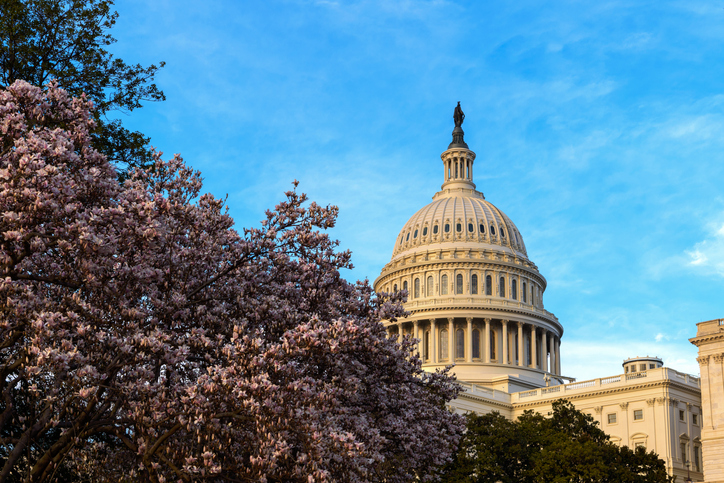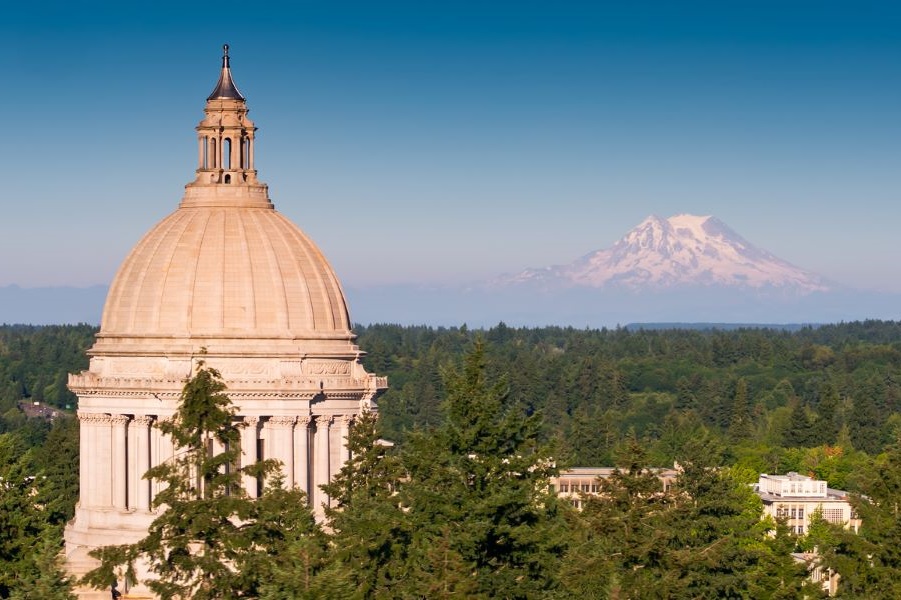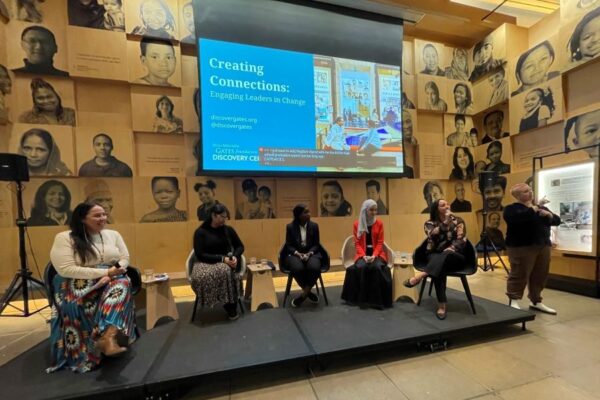All About Advocacy: United Way’s 2024 State, Federal Agendas
United Way of King County and our partners advocate for public policies that help dismantle systems that create our region’s racial, social, and economic inequalities. Yet we know that, as those systems weren’t developed over one legislative calendar, changing them won’t come as quickly. Often, it takes time.
That’s why, when you read our 2024 State and Federal Agendas, you might notice items from years past. It simply means there’s still work to be done in that area. Sometimes, it means advocating for a new, improved legislative bill that replaces a failed try. Often, it means further advancing a passed bill to broaden its scope and impact.
With every legislative session, we and our partners are determined to either knock down or whittle away harmful or draconian mandates until all individuals, families, and communities in King County reap the benefits of this region’s enormous prosperity.

“Often, we will see a bill item on a state agenda for multiple years in a row for a variety of reasons. The biggest reason is because it often takes years for a bill to pass,” says Amanda Sandoval, United Way associate director of systems change and public policy. “Legislators introduce several bills in a year. There is a small timeline for bills to be heard and several hundred possible bills. And because of that, only a percentage of them make it through.
“We also often see that the bill isn’t passed in its entirety. A part of it is added to another bill, so the following year we see it coming back,” says Sandoval. “For example, universal free school meals were on our agenda last year and will be again in 2024. This is because last year’s bill didn’t pass, but there was funding for pieces of the bill to move forward.”
With this being an even-numbered year, the 2024 legislative session convenes on January 8, 2024, and is slated to be 60 days long (sessions in odd-numbered years are 105 days long). That means a slew of proposals will be packed into a short period of time. Among the items expected to be prioritized are housing availability and affordability, fuel costs, health care, taxes, and the environment.
Many of these priorities align with United Way’s state and federal agendas.
Here are some state items we’re prioritizing:
- Fund one full-time on-campus navigator at 2- and 4-year colleges to address basic needs barriers and support students’ pursuit of higher education (the previous session funded full-time navigators at only some schools.)
- Expand funding to the Covenant Homeownership Account Program to make homeownership accessible for people affected by government-supported discriminatory housing policies, increasing intergenerational wealth-building opportunities for people of color.
- Include barrier reduction funding for Open Doors Youth Re-engagement programs to support students persisting in their education.
- Eliminate the use of student restraint and isolation in K-12 schools and increase multi-tiered support systems instead.
- Increase access to dual/tribal languages for all Washington students in grades K–8.
Federal lawmakers will convene the second week of January with the general election on the horizon. Discretionary spending, health care, taxes, and the environment are slated to be priorities at the start of the year.
Here are some federal items we’re prioritizing:
- Strengthening student support, including mentorship programs, tutoring, addressing learning loss, counseling, and equitable access to digital technology.
- Support housing and affordability legislation that provides new funding and technical assistance for communities to reform zoning and development codes, modernize structures, and create housing action plans.
- Address inequities in homeownership by passing and fully funding the Downpayment Toward Equity Act and the Native American Direct Loan Improvement Act.
- Support a legislative solution that provides citizenship and security for the 800,000+ individuals and families that benefited from Deferred Action for Childhood Arrivals.
- Support the legislative priorities of communities of color, including dual/tribal language access, health equity, investing in Black, Indigenous, and other educators of color, and cultural resilience programs.
United Way will continue to work at the state and federal levels for policies that ensure everyone has access to resources, high-quality education, enough to eat, and a safe place to call home—even if it all takes years to accomplish.
To view our state agenda, click here.
To view our federal agenda, click here.
For our archive of state and federal agendas, click here.
Sign up for Policy Action alerts here.




Comments